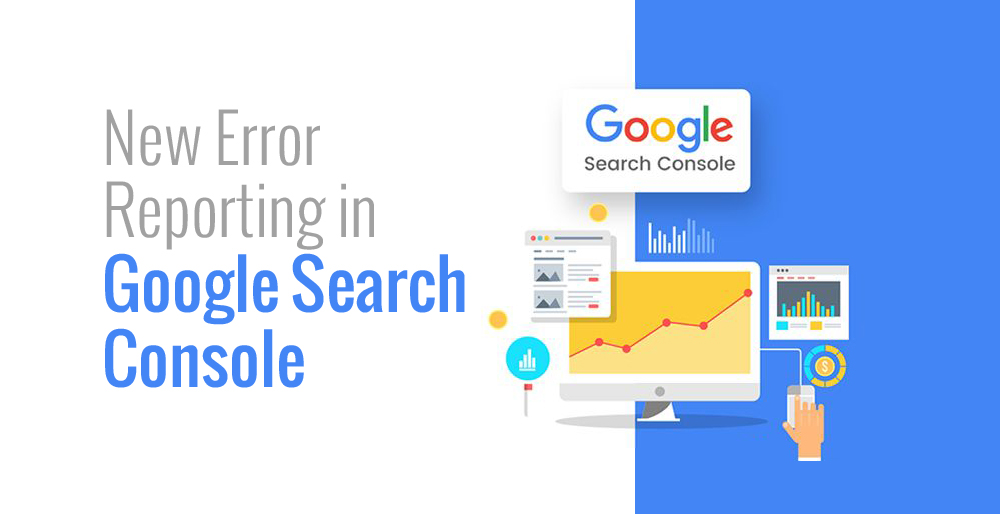What is the Best Way to Search Your Website for Content?
The results may not always be helpful if you search based on titles and snippets of text. With search engine marketing (SEM), it is tough to generate conversions or sales if search engines cannot understand the context and meaning of your content.
Use WordLift to fully automate the generation of structured data and add them to your website instead of a dedicated plug-in. First, you know how to use code, and then you see the process of creating and adding structured data manually to your website.
A search engine that does not understand what page content is about will not rank well in search results. You can find snippets of your content on the search engine result pages. Users can use this snippet to determine what content is on the page.
Some Critical Differences Between Microdata and Rdfa

JSON-LD uses URL-style identifiers separated by colons rather than the more verbose names and types found in Microdata and RDFa. The following demonstrates how Microdata could be used :
The same schema supports results for people searches as well. Structured data for people and blog search results can be published using the following example. Search engines utilised Microdata or RDFa (or both) to search results to extract structured information from webpages, whereas JSON-LD was required until recently. There are two types of Microdata, Microdata and RDFa, which have broader browser support but are not recognised by all search engines. Microdata are supported by search engines such as Bing and Google, while all search engines do not support RDFa.
However, the company has recently released a third format called JSON-LD, which they favour over the previous two.
Microdata, RDFa, and JSON-LD are the three markup examples provided by the new search engine structured data testing tool.
Documentation pages for each search engine provide markup examples, such as Google’s official guidelines. Nevertheless, this article shows you how to implement JSON-LD on your website before explaining why you should use it.
What Are The Benefits of Implementing Structured Data In Search Engines?
A search engine tag can assist search engines in better understanding your webpage’s content, which has many benefits.
As a result, search engines can display more relevant rich results to specific queries. The second benefit of rich snippets is that they allow search engines to pass back some of this information, which helps to increase click-through rates and traffic from search results. Third, implementing markup can also help improve a site’s visibility in other local search services such as Google Maps or Google.
Here is an Example of a Microdata Markup Chunk for a Blog Post :
Please see the “Blog search” section in the table above for more information on this article snippet. This can be implemented in RDFa, like below : Here is an example of a blog search in RDFa.
Search engines crawl the web to deliver search results, which means they are search engines. Its crawler matches searches on Google with pages that match your search terms. Links and information about those pages are provided, such as what words appear in their titles, descriptions, etc.
Using schema markup on a website is encouraged by search engines since it provides search engines with context about the type of data they are dealing with. By doing so, search engines get a better understanding of your business. Users’ ability to be found through search improves with a better experience. Relevant and high-quality search engine results are a result of this.
Search engines provide three types of search results : organic rich results, paid search ads, and suggestions of content “People Also Ask.”.
Schema markup on web pages benefits not just search engines. Due to the search terms being highlighted in the context of the end user’s search intent, the end-user also benefits from being presented with data more quickly. Using schema markup will help make your website more visible to search engines by assisting them in understanding what it is about. By using this information, search engines can promote your site in organic search results, present your site as an advertisement in conjunction with other ads (so-called “Sponsored Links”), or present search suggestions tailored to the user’s search term(s) entered.
In theory, schema markup allows search engines to provide users with more reputable search results by better understanding you and what you do.
Schema markup can be created for your web pages with just a text editor. No special tools, software, or skills are needed. This article provides information about creating search engine friendly schema-markup for your web pages, focusing on the item type attribute of the Schema micro format.
Learn the Ways to Create Structured Data
1. Understand how search engines format their content
2. Analyse the types of data (e.g., people, reviews, events)
3. Ensure that each data type has a search-friendly schema
4. Use HTML5 elements and attributes to highlight search data
1. Understand how search engines format their content
You must realise that search engines format data slightly differently depending on the search term(s) entered by users before you create search-engine-friendly markup for your web pages. In this situation, if I Goggled “Wendy’s menu”, the search results would show me Wendy’s location and operating hours (e.g., “HOURS : 11 AM – 10 PM daily”), as well as their website, phone number, etc.-before the results are even displayed. The search results on search engines like Google, Bing, and Yahoo! can include a wide range of elements, including :
- Information about the location
- Information on how to contact us
- Telephone numbers
- Business hours
- Food items on the menu
- Data from social media (e.g., Facebook)
- Award / rating / review / testimonial
Depending upon your site or web page(s), you may not need all of this search data; you only need that which matches the search terms entered by the user. The search engine will display search data from your web pages depending on the relevance of their results to the search terms entered by the user.
2. Analyse the types of data (e.g., people, reviews, events)
Depending on the search terms entered by the user, search engine formatting requirements are different. This is why you need to identify the type(s) of search data to highlight the correct search data using schema ch terms entered by the user. The seo markup. I would need to highlight search terms such as “location” and “hours of operation” if I was creating schema markup for a web page about “restaurant locations”. A website about Wendy’s menu would require search-friendly schema markup that highlighted terms such as “food” and “nutrition facts”. It’s easy to understand that search data types are related to the specific subject matter.
The following table lists the different kinds of search data. Please consider these search data types suggestions as starting points for creating your search-friendly schema markup based on the search terms entered by your users.
1) LOCATION/DIRECTIONS
2) CONTACT INFORMATION
3) PHONE NUMBERS
4) HOURS OF OPERATION
5) MENU ITEMS
6) FOOD NUTRITION FACTS/SERVING SIZES
7) SOCIAL MEDIA DATA
An example of a search data type is as follows :
LOCATION/DIRECTIONS : “Wendy’s location in New York”.
Related search data types : “location” and “hours of operation”, etc.
3. Ensure that each data type has a search-friendly schema
It is recommended that everyone used search-friendly schema markup for the search data types earlier in this article (e.g., LOCATION/DIRECTIONS, CONTACT INFORMATION, etc.). Schema markup generally consists of four sections : 1) Object > 2) Properties > 3) Property >
4. Value.
Using search engine data validation tools, validate search engine-friendly schema markup
Before moving on to section 5 of this article, it is imperative to check the validity of your search engine data after creating search-friendly schema markup for each search data type. Fortunately, it is easy to validate search terms highlighted in your schema markup using most search engines’ free online search data validation tools. Visit Google’s Structured Data Testing Tool to learn more about validating structured data.
5. Check to see if the search terms highlighted in the search-friendly schema markup are search engine-friendly
Before moving on to section 6 of this article, you should verify that the search terms used in your search-friendly schema markup are “search engine friendly”. A free search term research tool can be used, such as Google Trends. Discover how to verify that search terms highlighted in search-friendly schema markup appear in search engine indexed schema markup so that changes can be tracked over time. Search engines offer free online tools for searching data to accomplish this. The Google Data Highlighter is an example of a search engine data insertion tool. The Data Highlighter allows users to input simple HTML code into their website’s backend to create structured data containing search engine search terms highlighted within search-friendly schema markup. Visit Google’s Data Highlighter for more information
6. Using search engine data optimization tools, optimize search terms highlighted with search data markup
After creating search-friendly schema markup for each search data type, it is essential to optimize the search terms that you have highlighted within your search-friendly schema markup so that search engines will properly “weight” them. For search term(s) highlighted within search-friendly schema markup, all search engines use a default “neutral” weighting strategy, meaning search engines will return equally weighted results for search term(s) highlighted within your search-friendly schema markup. Visit Google’s Data Highlighter for more information
7. Use free search data verification tools online to verify search results
Upon creating search-friendly schema markup for each search data type, you should test every attempt made to develop search term(s) highlighted in your search-friendly schema markup. Search engines’ search data insertion tools can verify that all attempts at creating them are correctly displayed. As an example, Google’s Data Highlighter can insert search engine data.
8. Using search engine optimization tools, optimize search terms that are outlined in search data markup
It would be best if you then optimized the search term(s) highlighted in your search-friendly schema markup so that they are correctly “weighted” within search engines’ indexes after you have completed creating search-friendly schema markup for each search data type. When indexing search terms or phrases highlighted in search-friendly schema markup, all search engines use what may be described as “neutral” weighting, meaning that search results for each indexed attempt at creating them are returned equally.
Here is information about search engine optimization, as well as Google’s insertion tools for search engine results
9. Using search engine search result optimization tools, optimize search terms highlighted with search data markup
Having created a search-friendly schema markup for each search data type, you need to ensure that the search terms highlighted within your schema markup are properly “weighted” within the search engines’ indexes. When indexing search terms highlighted within search-friendly schema markup, all search engines utilize a “neutral” weighting strategy, meaning search results for search terms highlighted in your schema markup are returned equally.
Conclusion
The search engine’s user will only see search results for search terms highlighted in your search-friendly schema markup if the user searches for those terms in the search engine. When search engines don’t recognize the markup, they will return search results for other search terms instead-even if those additional terms are also found on the same webpage as those with search data markup. Visit iMetaDex for more information on structured data generation.
To learn more about iMetaDex™, click here.
MetaSense Marketing Management Inc.
866-875-META (6382)
support@metasensemarketing.com














































































































